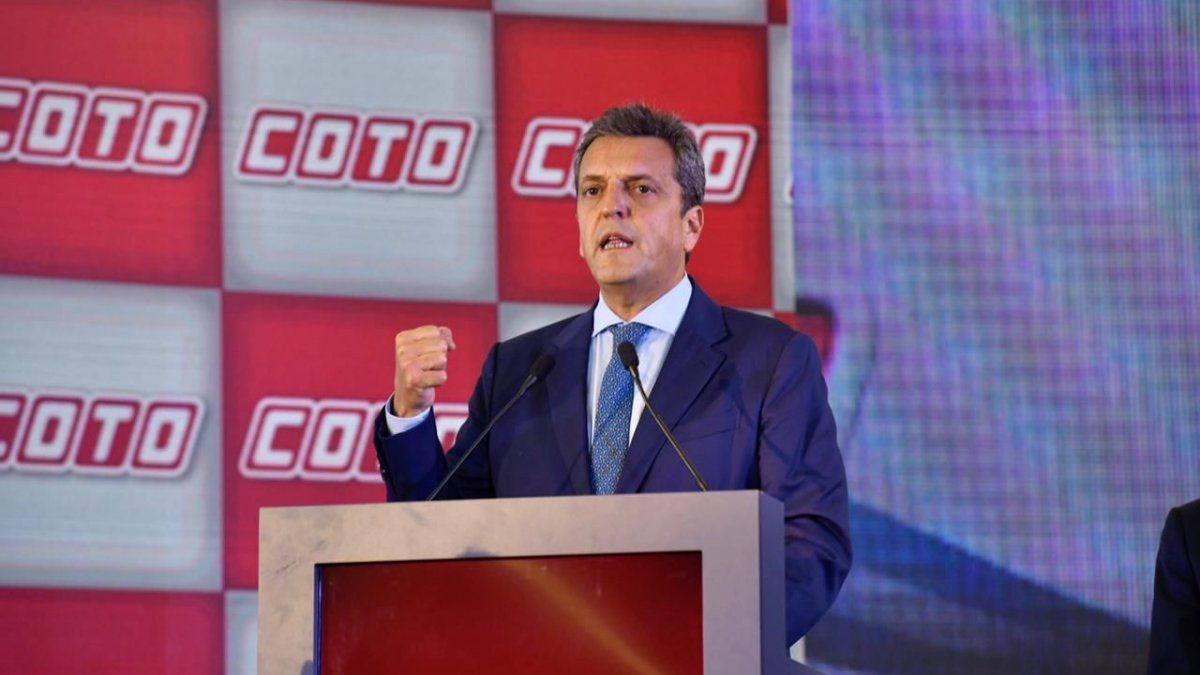The guarantee of universality of global capitalism is safe under Massa’s management, and is quietly accepted as the only possible path today. The formerly harmonious national and popular movement mobilizes only in order to keep under control the antagonisms that come from the financial dynamics in which we are immersed since Mauricio Macri became president of Argentina.
It is very important that Sergio Massa continue in office and that the IMF continues to maintain the agreement with all the waivers that are necessary in the next reviews – such as those it gave to Cambiemos. It is also important that there is not some alarming political operation, before the electoral contest that triggers a greater flight from the peso and complicates Fernández, with an exchange and financing crisis in the local debt market.
Inflation went from 6.6% monthly in February to 7.7% in March, 8.4% in April and fell to 7.8% in May, with a downward trend during the first two weeks of June. The first quarter showed a higher level of activity than anticipated by establishment consultancies. This does not guarantee a sustained trend, rather a slowdown with the countryside leading the decline, with falling real wages and uncertainty due to the proximity of the elections.
MASSA THE IMF AND CHINA
Through Massa’s management, China authorized to expand the use of the swap by an additional US$5 billion,that they can be used to intervene in the foreign exchange market. In the current context, the advance of disbursements from the IMF is important, although the negotiations are stuck because there is no agreement on the magnitude of the advance of funds; nor on the use that will be given to said funds. Progress was made in the parity agreement, where the IMF wanted a 60% devaluation, but would agree to 30% in 3 tranches.
But basically the entity does not want to do what it did in 2018-2019 disbursing sky-high figures and in advance of what was originally agreed. Remember that the IMF gave Macri dollars so that investment funds and US banks that wanted to flee, would flee. Now he intends to limit disbursements, tying them to new conditionalities. Although the disbursements will be made, the need to implement another unequal exchange rate cannot be ruled out since June and July are months of high demand for foreign currency, especially if the advance of funds is tighter than necessary.
With very low net reserves in the BCRA and an implacable shortage of dollars, the repeated exercise of limitations that the Government is applying to the single market access to importers, provinces and companies is essential.
In some cases, the difference in the different exchange rates and the lack of adequate controls led to the generation of penguins financial business. Then, the BCRA established a 90-day term for the payment of maritime freight abroad and restricted access to the official market to the provinces for up to 40% of the amount to be paid in dollars, with which it demanded refinancing or paying with their own dollars the remaining 60% of its obligations.
The controls that began with the stocks established by the Mauricio Macri-Hernán Lacunza duo are becoming increasingly tougher. Also, for the new sketches agreed for the import of automotive companies and oil companies, and the regulation of the National Securities Commission that limited the dollarization of portfolios by curbing speculation with bonds that forged the mediation of the BCRA to seal the fissure.
The Government increased the SIRA payment term for car imports for terminals from 120 days to 195 days, and in the case of imported auto parts, the SIRA payment term was extended from 45 days to 75 days. Oil companies were asked to finance their fuel imports for 90 days without resorting to the official market. In order to stop the arbitrations that were generated in the bond market due to the intervention of the BCRA to contain the exchange gap and that substantially increased the cost of its interventions, the CNV established that those who buy MEP dollars or Cash with liquidation, will not be able to operate with other dollarized assets for 15 days.
In addition, The Central Bank continues to mediate in the MEP dollars or the stock market and counted with bond settlement, disregarding the IMF’s suggestions. In fact, since the end of April he has already used some US$1 billion in reserves to buy titles and has also sold titles in pesos for around US$5 billion nominal.
Lower liquidations are expected from now on for seasonal reasons and due to the expiration of the differential dollar. To this must be added the increased demand -also seasonal-, which is going to make it difficult to accumulate reserves, with which the exchange rate pressure will be greater.
The BCRA closed May with a short position in futures for US$2.9 billion, US$2.7 billion more than in March, thus reaching the highest level in the last seven months. This uptrend is likely to continue, complicating the legacy of the new management.
During 2023, the Government paid maturities for almost $4 trillion and managed to place more than $5.2 trillion. In this way, until the end of May 2023, it achieved a net financing of almost $1.3 trillion in the domestic debt market, thus being able to finance the difference in the primary fiscal deficit. In addition, the debt in dollars was renewed through indexed securities.
Debt indexed for inflation or the exchange rate already embodies 90% of the total stock of bonds in pesos. Until the end of the year, the Treasury has faced since June: $13.4 trillion in debt maturities in pesos, although only 4 trillion are debt maturities in private hands. The truth is that the Government has managed to successfully face the maturities.
The next government will face payments for $11 trillion in the first two months of 2024, with total maturities (2024) of $37.4 trillion, more than 5 points of GDP. The barter of last Thursday cleared maturities between June and September for $12.6 billion. The BCRA sent Temporary Advances to the Treasury in May for $440 billion (totaling $670 billion for the year), but the Treasury took pesos for $172 billion to the BCRA to buy dollars and deposited the remaining $292 billion in its account in the center
Of the debt issued in May, 98% were index-linked instruments. 80% of the total placed were bonds indexed to inflation and 18% to the dollar. A substantial part of the financing-more than 50%-came from the banks that bought the reserve bonds.
In short, Sergio Massa is a political leader, who understands how a Front government works with different Peronist versions, he conceives it as a public limited company with different shareholders, where he acts as general manager. This is how political elites work today, not only in Argentina but also worldwide. With a Peronism that was splitting off and moving away from a stagnant and isolated PJ, Massa today functions as an essential device on a day-to-day basis, between the political and the corporate. Even so he personally thinks, if he is not a business (sole candidate), he will not be a candidate.
The candidate for president of Unidos por la Patria will have to be disruptive and accept the threat of permanent rupture as fate. It will not be about avoiding risks and making the right decisions as in the year of the elections. If we continued like this in 2024 we would be doomed, no matter how prudent we were. The solution does not consist in being judicious and avoiding risks, doing so would participate in the logic that inevitably leads to catastrophe.
Director of the Hope Foundation. https://fundacionesperanza.com.ar/ Graduate Professor UBA and Masters in private universities. Master in International Economic Policy, Doctor in Political Science, author of 6 books
Source: Ambito
David William is a talented author who has made a name for himself in the world of writing. He is a professional author who writes on a wide range of topics, from general interest to opinion news. David is currently working as a writer at 24 hours worlds where he brings his unique perspective and in-depth research to his articles, making them both informative and engaging.




